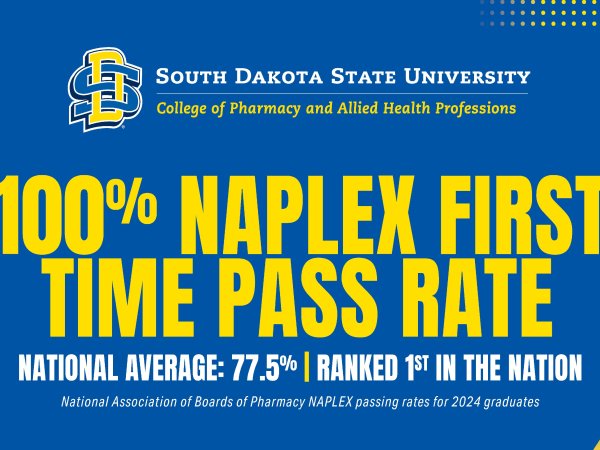Two South Dakota State University students have won national awards for their work in geospatial science.
Lan Nguyen and Yenni Vetrita, doctoral students from the Geospatial Sciences Center of Excellence (GSCE), won second and third place respectively for their use of satellite data in evaluating and mapping various aspects of “land and water resources using Earth-observing satellite imagery. “
Nguyen won $150 in the student poster competition at the 20th William T. Pecora Memorial Remote Sensing Symposium for a new approach to “identifying vegetation change in the Northern Great Plains,” according to a press release from SDSU. Vetrita won $75 for satellite-based mapping “to characterize peatland fires in Indonesia.”
Nguyen analyzed the seasonality of the land surface in the Dakotas, Minnesota, Iowa and Nebraska.
“Even though this area does not have a lot of people, there are a lot of changes in land use going on,” Nguyen said.
The data collected will be important to those managing land and other natural resources. Vetrita’s research looks at land use/cover and water stress affecting peatland fires in Indonesia.
According to the Global Fire Emissions Database, in 2015, India became the world’s fourth-largest contributor of carbon emissions, reaching almost 1.62 billion metric tons of CO2 and due in large part to recurring wildfires in peatlands.
The United Nations program on reducing emissions from deforestation and forest degradation (REDD)
offers financial incentives to countries that reduce their carbon emissions, but requires accurate tracking, and so far there is no historical “burn map” to track India’s effect on global emissions.
Vetrita will have to analyze the satellite images she recovers and figure which of the images is the most accurate.
“We need to know where the fires are so we can estimate carbon emissions,” she said. “By providing a better map, we can reveal the truth and thus come up with a solution.”
GSCE co-director Geoffrey Henebry said they are “very proud” that two SDSU students have made it among the top three winners.
“It is an honor to have my work recognized,” Vetrita said. “This is ongoing research that will be useful for my country — and something that I will continue back home when I complete my doctorate.”



















